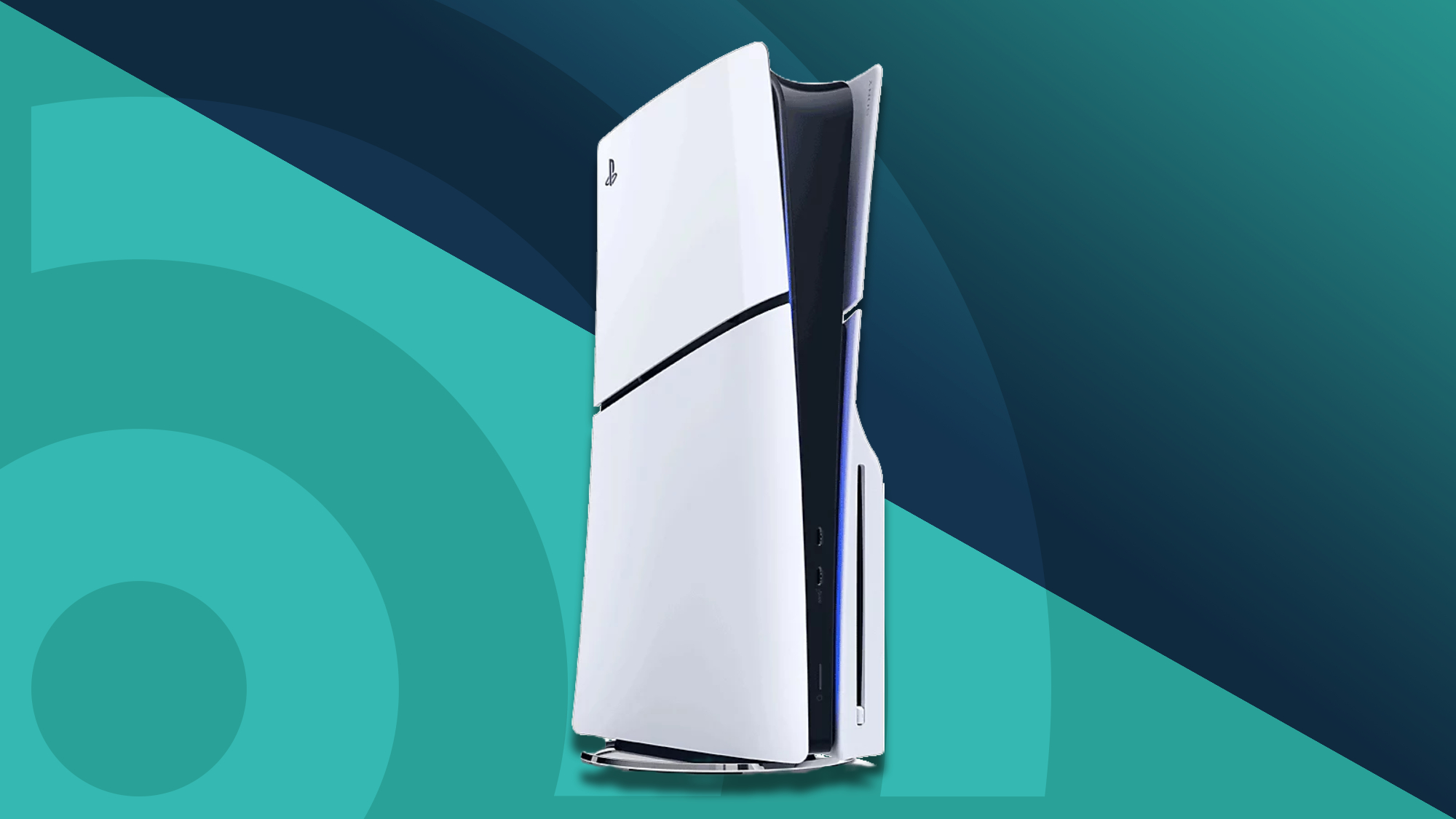
If you’re shopping for a new PlayStation 5, then, sooner or later, you'll find yourself having to weigh up the original PS5 Slim vs PS5. Released back in November 2020, the first incarnation of the PS5 is comfortably the most ubiquitous version of the games console and is notable for its absolutely huge, almost futuristic design.
The PS5 Slim, in contrast, is considerably smaller and only hit shelves in November 2023. It continues Sony’s long pattern of offering a much smaller console within each generation, but there's a pretty significant catch this time around. Unlike the previous PlayStation 4 Slim, which was released as its own distinct model, the PS5 Slim is intended to fully replace the launch model of the PS5. While some original PS5 stock is still around at certain retailers, it’s been steadily dwindling and is going to be replaced in the foreseeable future.
This means that unless you're willing to splash out extra for the PS5 Pro that arrives later this year, the PS5 Slim is likely going to be the easiest one to get ahold of in terms of the base models. Even so, there are several key differences between the PS5 Slim and PS5, such as the presence of a removable disk drive or the system’s overall storage capacity, that make them well worth comparing if you’re currently deciding between the two.
PS5 Slim vs PS5 - Price
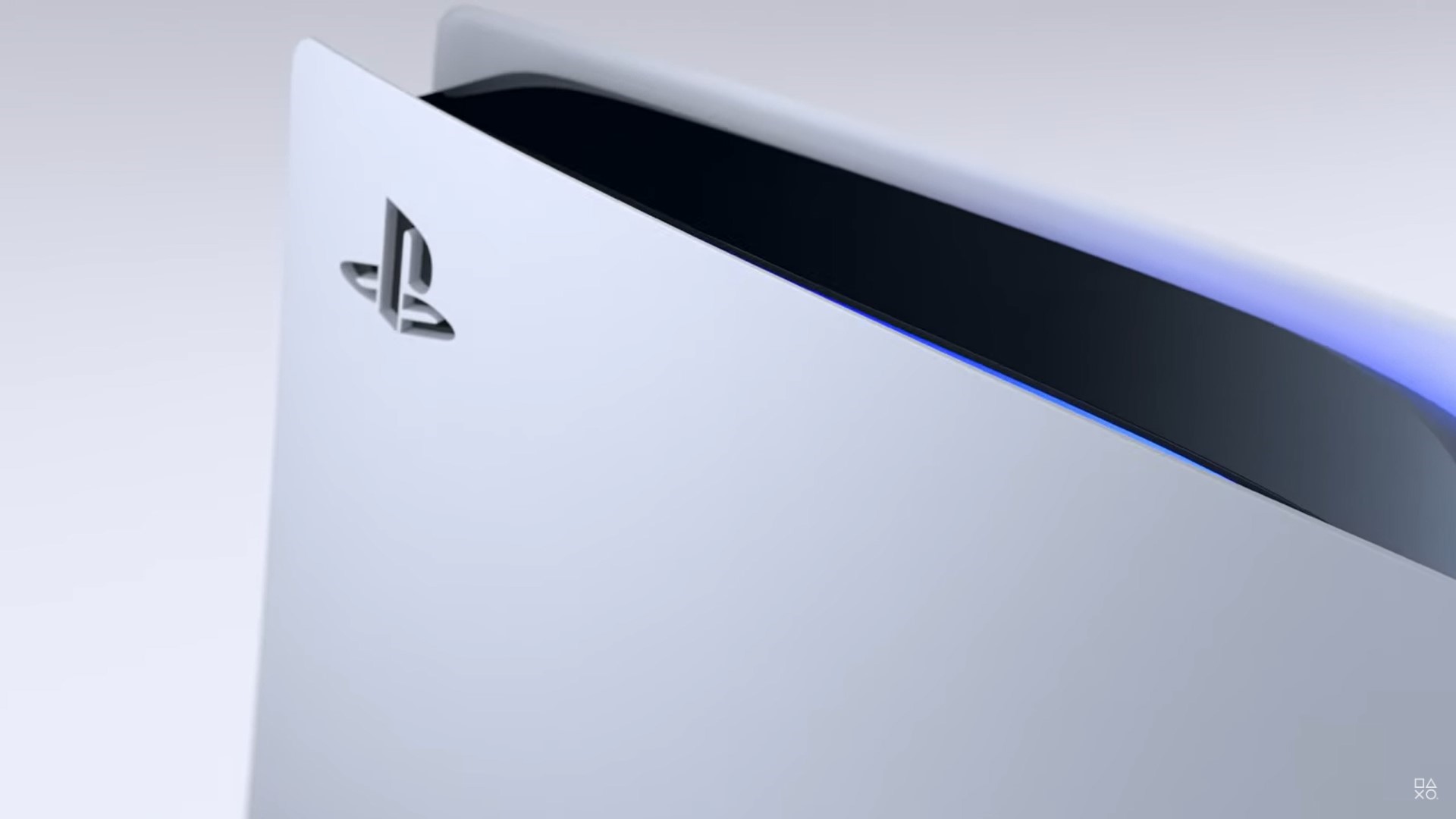
When it comes to the PS5 Slim vs PS5 in price, there are some similarities and differences. The standard, disk-drive versions of the PS5 and the PS5 Slim both retail for the same price of $499.99 / £479.99 / AU$799.95. Just like the launch PS5, there is also a cheaper PS5 Slim Digital Edition available for $449.99 / £389.99 / AU$679.95 which does not include a disk drive.
Unlike the first PS5 Digital Edition, however, the PS5 Slim Digital Edition is compatible with an optional disk drive accessory which adds all the functionality of the standard version for the cost of $79.99 / £99.99 / AU$159.95.
The PS5 Slim also does not come with any kind of vertical stand, something previously bundled with the console. A redesigned vertical stand that is also backwards compatible with the launch PS5 can be purchased separately for $29.99 / £24.99 / AU$49.95.
Due to its relative age, the original PS5 is now quite hard to find but still occasionally appears in stock in the form of bundles with games like Call of Duty: Modern Warfare 3 or Marvel’s Spider-Man 2. Retailers also occasionally offer their own incentives to buy remaining units, whether that’s a small discount, or some free physical games and accessories with your purchase.
Now that the PS5 Pro has been revealed, there's even more to consider. If you want to upgrade to the more powerful model, then you'll be paying $699.99 / £699.99 / AU$1,999.95. This will get you better performance, a larger GPU, and AI-driven upscaling, but you won't get a disc drive or a stand, and will have to purchase Bothe separately.
PS5 Slim vs PS5 - Specs and features
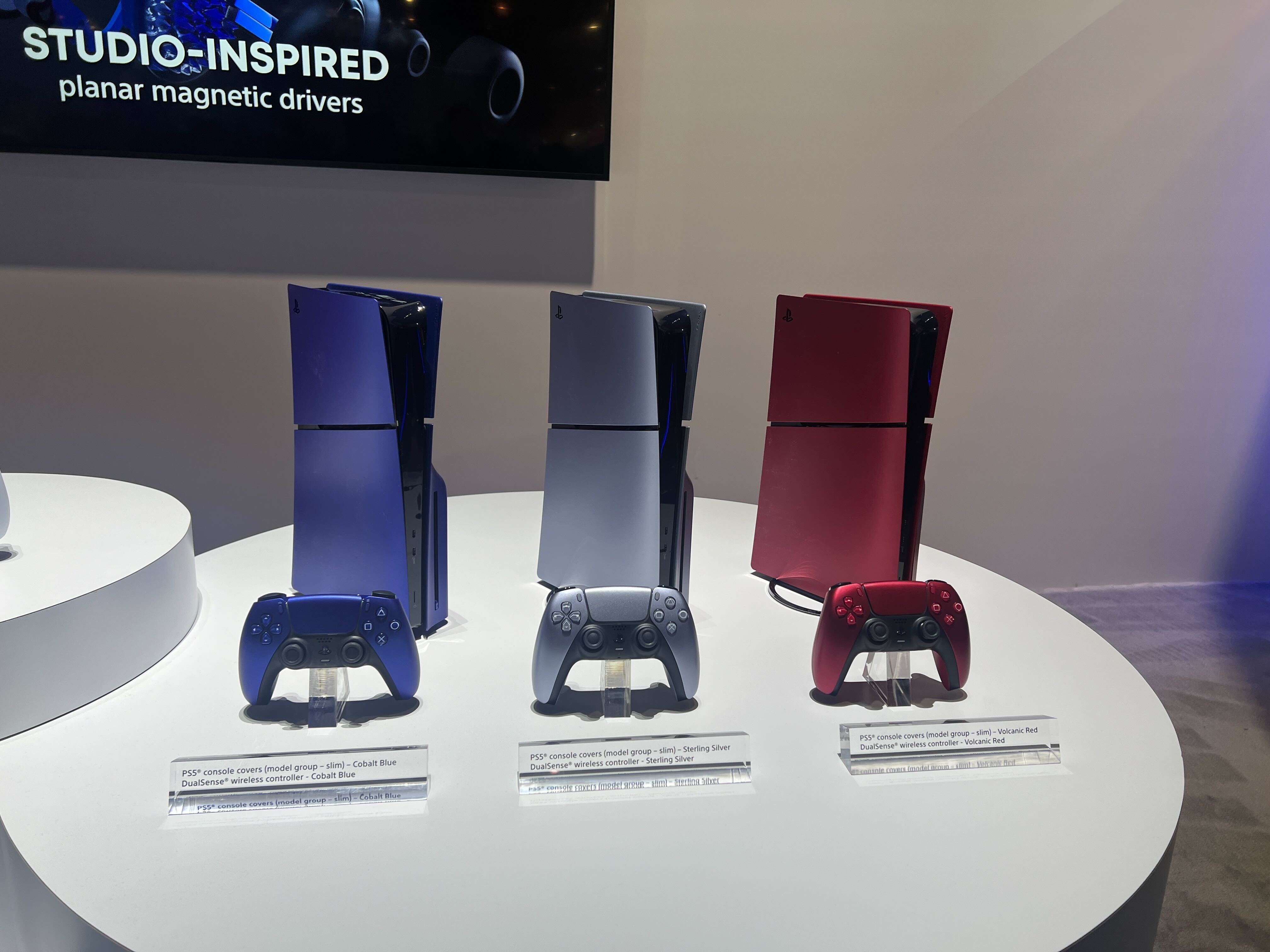
The PS5 Slim and PS5 have almost identical specs with the only notable difference being their respective storage capacity. While the PS5 comes fitted with an 825GB SSD drive (translating to about 660GB of usable storage), the PS5 Slim has an upgraded, larger capacity of 1TB, giving you roughly 850GB of space out of the box. Like the launch console, the PS5 Slim can then have its storage capacity upgraded by purchasing any of the best SSD for PS5.
When it comes to components, the PS5 and PS5 Slim are identical. Both consoles use the same AMD RDNA 2 graphics card and the same 8-core AMD Ryzen Zen 2 processor, and both have 16GB of GDDR6 RAM. As a result, it shouldn’t be much of a surprise that performance across the two systems is exactly the same. Those using a PS5 Slim can enjoy all of the standard PS5’s features such as Tempest 3D Audio tech and support for 4K video output at a 120Hz refresh rate in compatible games. Both consoles also come bundled with an identical DualSense Wireless Controller, which boasts its own set of features including haptic feedback and adaptive triggers.
Specs aside, there is one major feature on the PS5 Slim that separates the two models dramatically: the removable disk drive. The process of installing a disk drive is extremely straightforward, requiring you to remove the console’s panel and simply click the disk drive module into place. The same goes for taking the disk drive off, which can be accomplished in a few seconds. Not only does this allow owners of the PS5 Slim Digital Edition to upgrade to a standard PS5 Slim, but may also be a huge benefit when it comes to repairability. If the disk drive of your PS5 Slim happens to break, it can be easily replaced at home without the hassle of having to send your console off for repair.
The PS5 Slim also drops the USB-A port on its front panel, replacing it with a second USB-C port. A more modern connection standard, USB-C offers faster data transfer times and is compatible with the vast majority of recent PS5 accessories so this is a solid upgrade.
Like the PS5, the PS5 Slim is also compatible with a range of colorful new console covers. These cost $54.99 / £44.99 / AU$84.95 and allow you to customize the look of your system.
PS5 Slim vs PS5 - Design and dimensions
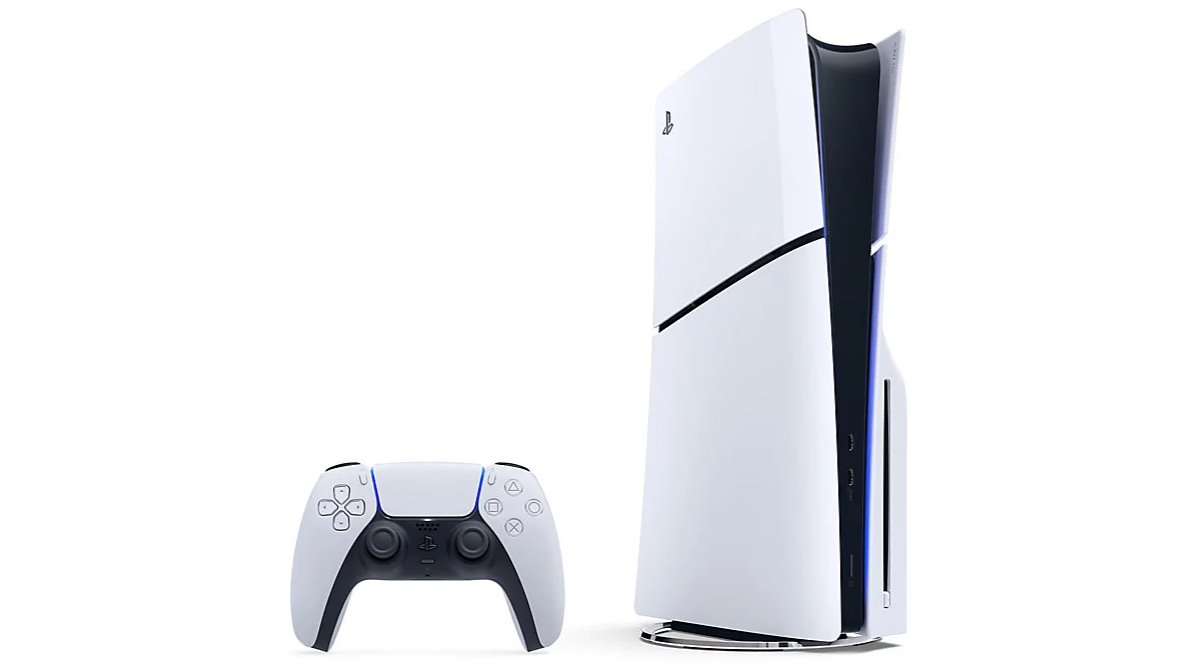
The PS5 and PS5 Slim follow a broadly similar design, with two smooth white plastic exterior panels sandwiching a central black column.
In terms of specific dimensions, the PS5 Slim has a width of 14.1in / 35.8cm, a height of 3.8in / 9.6cm, and a depth of 8.8in / 21.6cm when lying horizontally. In contrast, the PS5 has a width of 15.3in / 39cm, a height of 4.1in / 10.4cm, and a depth of 10.2in / 26cm while in the same position. The PS5 Slim also weighs 7.1lbs / 3.2kg while the PS5 comes in much heavier with a 9.9lbs / 4.5kg weight. Overall, the volume of the console has been reduced by over 30% and the weight has been decreased by 24%.
While we still think that the sheer heft of the launch PS5 means that it looks a little more impressive, the reduced size of the Slim is a welcome change. The original PS5 is simply far too big for a lot of setups - especially when you try to factor in sufficient airflow around it. The PS5 Slim offers the same functionality in a dramatically smaller package. Although it's by no means a portable console, the reduced weight also means that the PS5 Slim is far easier to transport if you need to.
It is worth bearing in mind that the PS5 Slim can only be used in a horizontal configuration out of the box. Although the launch PS5 came with a vertical stand, this is no longer included and has to be purchased separately. A small metal support is present, but only serves to keep the console lying flat on its side. This could actually make it more difficult to fit in a setup with limited floor or shelf surface space.
PS5 Slim vs PS5 - Which should you buy?
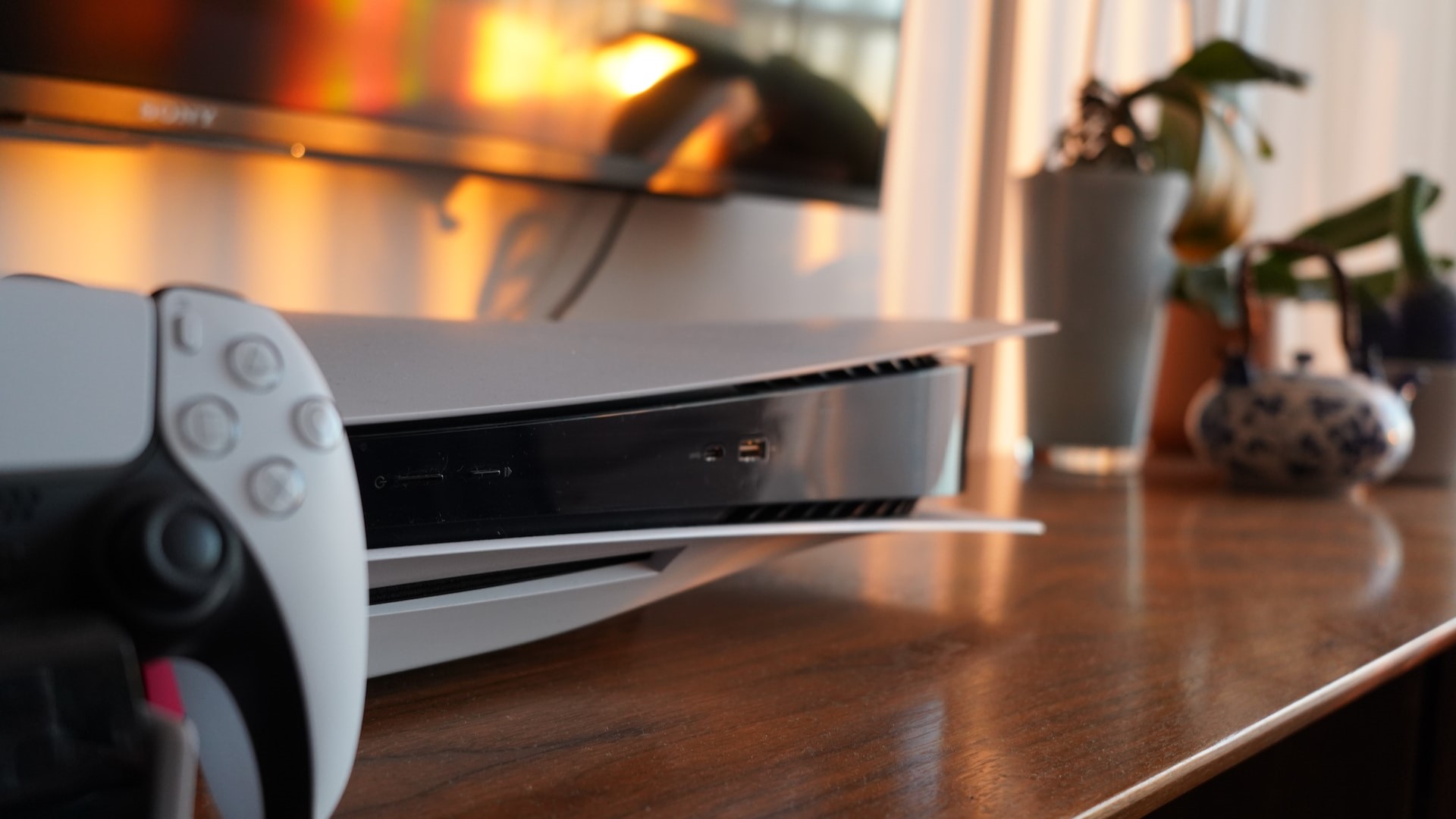
Despite the arrival of the PS5 Slim, the original PS5 is still worth considering if you manage to find it in stock. As both consoles have the same performance and features, you shouldn’t hesitate to pick up an original PS5 if you find one that is on sale or in a bundle for a lower cost. That said, the improved storage capacity, extra front-facing USB-C port, and smaller size of the PS5 Slim make it a worthy successor to the original design and a strong premium option - especially if you like the idea of the extra flexibility afforded by the removable disk drive.
Buy the PS5 Slim if…
Buy the PS5 if…
PS5 Slim vs PS5 - FAQs
What are the main differences between the PS5 Slim and PS5?
Our PS5 Slim vs PS5 article goes into much more depth about the exact differences but the key ones are as follows: the design of the PS5 Slim is smaller, lighter, and less bulky than the PS5; you'll need to buy a vertical stand separately for the PS5 Slim; and the PS5 Slim has more internal storage than the launch model.
is the PS5 Pro coming?
Yes, the PS5 Pro is arriving on November 7, 2024. It boasts a larger GPU, AI-driven upscaling as well as improved raytracing. It'll cost you $699.99 / £699.99 / AU$1,999.95, and does not come with a disc drive or a vertical stand. The headline specs are that the GPU is now significantly upgraded at "67% more Compute Units" and 28% faster memory. That makes for roughly 45% faster rendering on average. The SSD has also seen an upgrade, and there is now to be 2TB of internal storage.







